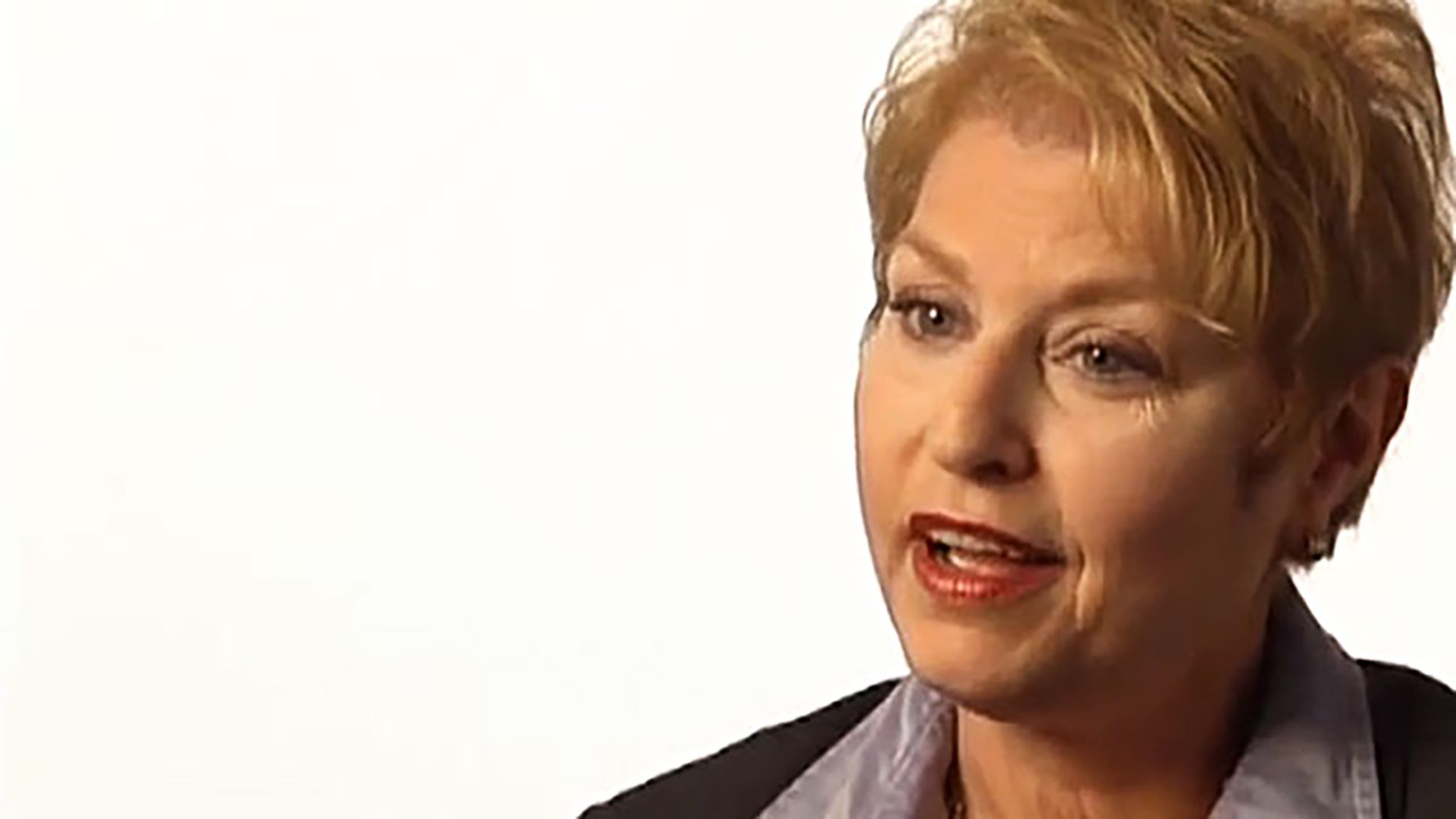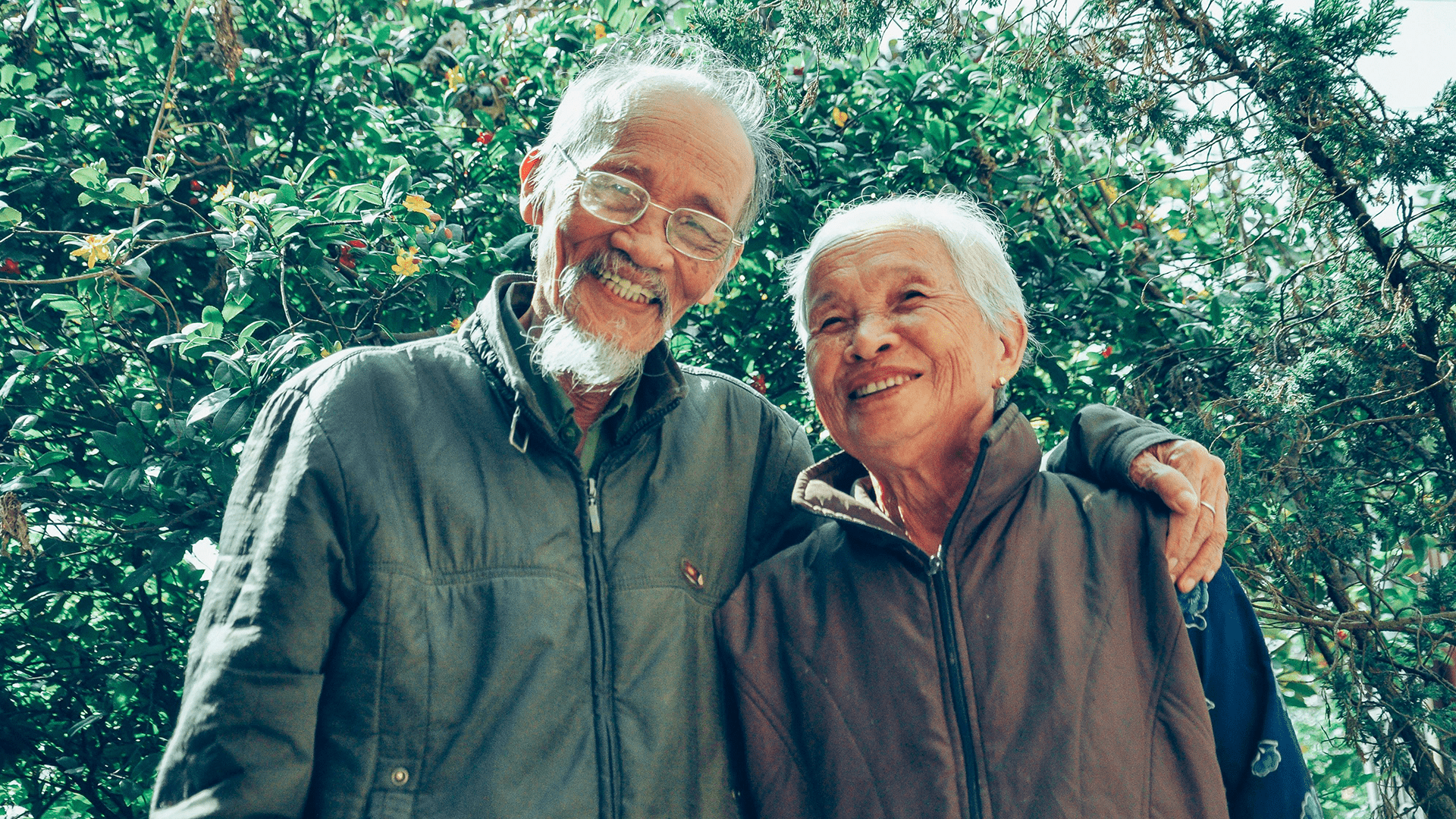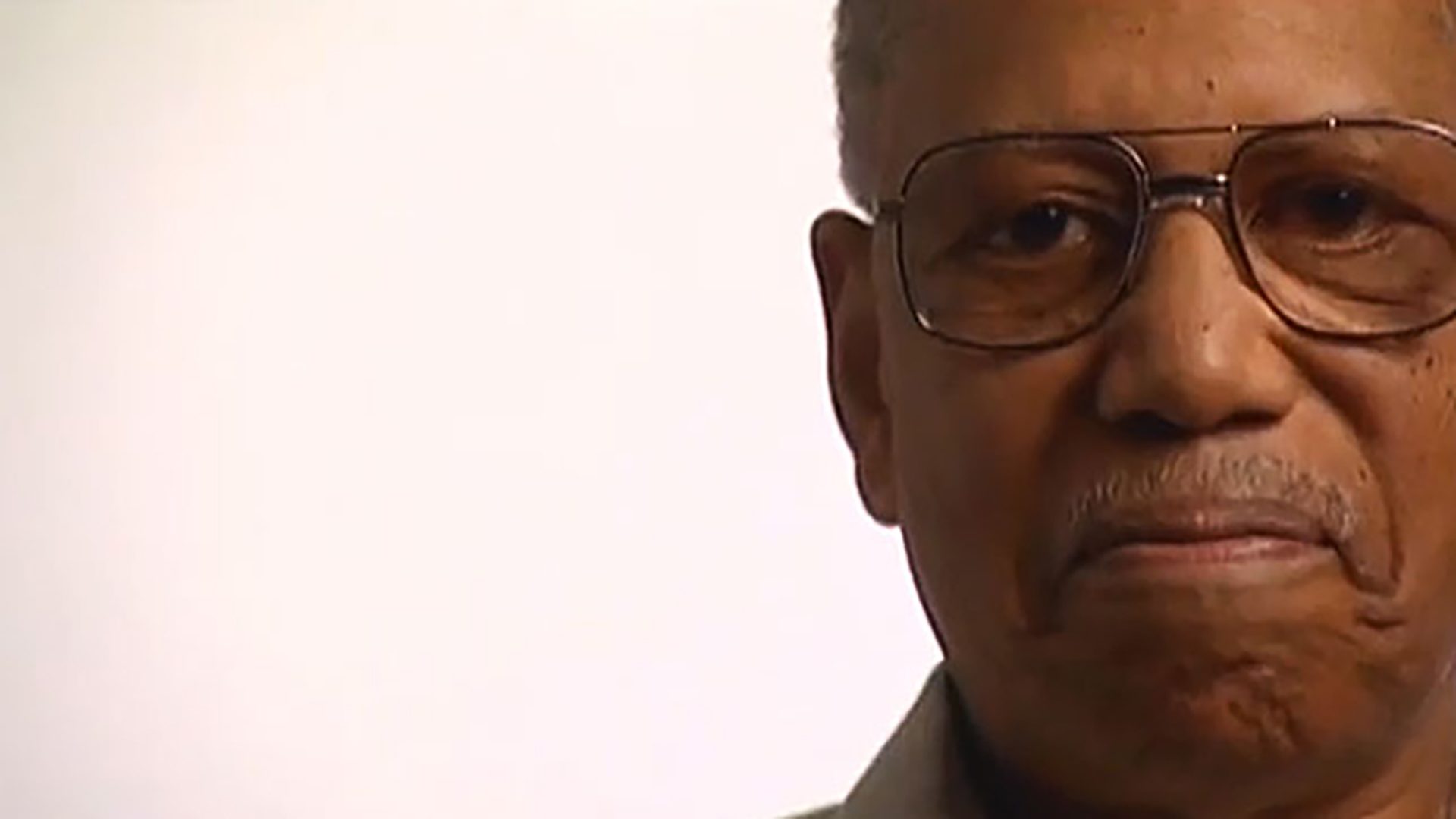Survivor Interview – Karen S.
Karen is a two-time cancer survivor. She talks about trying different complementary therapies, living with uncertainty, and life expectancy.

I became an ovarian cancer survivor when I was diagnosed in February of 2000, and I became a breast cancer survivor in September of 2003.
One of the problems with ovarian cancer is that the symptoms are very vague and are often confused with other symptoms. For about a year before I was diagnosed, I had a lot of gastrointestinal things. I would wake up in the morning belching, and I was constipated. When I would complain to my doctor, I was told, “You’re menopausal.” “You have an underactive thyroid.” “You work full time. You take care of your sick mother.” That went on for quite a while.
I had a checkup with my gynecologist in November of 1999. He couldn’t find anything. A couple of months later, I got to the point where I could not button my pants. I went to my endocrinologist. He gave me an internal exam and sent me around the corner for a vaginal ultrasound. I was called right back to his office. My doctor said, “I am pretty sure that you have ovarian cancer.” He just blurted out, “And you’ve got about two years.”
We were just blown out of the water. He said, “You’ve got to go in for surgery right away.” And I said, “I can’t go in for surgery right away. My mother is dying.” He said, “You’ve got to go in for surgery right away.” So that’s what happened. He booked me for surgery within ten days. My mother, thank God I never had to tell her anything, died in peace, thinking she had three well children. I buried her on a Friday and went in for cancer surgery on a Monday.
I come from a family with a strong history of breast cancer, but no one had ever discussed ovarian cancer with me. Very often in families with strong histories of breast cancer, there is also ovarian cancer. It’s particularly appalling since, after my mother was diagnosed, my sister and I were followed very closely for breast cancer from the time I was 35. Later on, my breast cancer was discovered very early, but I fell through every crack you could fall through with the ovarian, which is very typical, unfortunately. So I was diagnosed stage IV.
I had extensive surgery where I was cut from yin to yang. I already had my uterus removed when I was 38. They took out everything else that they could. With stage IV, very often you can’t remove everything, so I was left with a small amount of tumor. I’m most grateful that I do react well to chemotherapy.
My first chemotherapy was a Phase 2 clinical trial, which meant they had already ruled out the toxicities. I went into it because I knew I was already getting the gold standard, which was Taxol and Carboplatin. Getting Gemcitabine on the trial was perhaps giving me something that would be a little bit of a bonus extra. When you’re diagnosed with Stage IV, you’ve really got to go at it with the big guns. I had no fears about it at all. I knew that I needed to do the most aggressive thing I could for myself. Would I go into another clinical trial? Absolutely, when the time’s appropriate.
My doctor does not want to put me in another clinical trial until I’ve really exhausted more of the tried-and-true things. At this point, I agree with him. I have chronic recurrent ovarian cancer. There might be other doctors who might use bigger guns, but I would not have the quality of life that I have.
In 2003, I went in for a routine mammogram, and my doctor called me and said, “I think you might have a small breast cancer.” It was a very small DCIS, ductal carcinoma in situ. They removed that with a lumpectomy. Nothing had spread to the nodes. I could not have radiation, because I was on a drug called Doxil. Now I go in for frequent mammograms and checkups. I don’t mean to sound flip, but the breast cancer is like a P.P.S. to the whole situation. I’m essentially an ovarian cancer patient who has a little extra. But when you have this genetic predisposition, it’s essentially the same disease.
I don’t stay in remission very long, but when I do wander out of remission, I just wander a little bit and then they’ll put me on something else. I’ve done very, very well with the Doxil, which, ironically, is also used for breast cancer, so I’m being treated for both. I’m very grateful to be alive. I only wished I had known more about ovarian cancer, because I would have pushed my doctors more.
I’m very big on complementary therapies. I started acupuncture when I started chemotherapy. I also do energy healing, which is Reiki. I do cranial-sacral massage, which is also a kind of energy healing. I do yoga. I do find these things help. I have felt wonderful, with the exception of a few days. I always get a kick out of it when people are complaining about their bad back and their sore knee, and they’ve got this or that. I’m very happy to wake up in the morning and thank God I’m alive. I’m gonna live to be an old lady like my mother, and push on ahead.
My husband is a terrific guy, very sensitive and spiritual. He was wonderful. My daughters, I have not involved all that much, mainly because I don’t want to and also because they’re in New York. They see that I am doing very well. I don’t see any need to call them and tell them I’m going in for a treatment or scan, and raising their level of anxiety. My husband and my sister live it with me, but I don’t feel that way with my kids.
I have no problem with telling people, because I think that maybe I could just get one other woman from a group to see her doctor, and maybe push more than I pushed my doctors. I think when people hear me and see me with energy, looking and feeling great, they won’t be afraid. My aunt died from fear. By the time she told my mom that she felt a lump in her breast, it had spread to her lungs. She was afraid to even tell her own sister or her husband. The fear can kill you. I feel, as a survivor, that I should do whatever I can to make something good out of this, to try to help somebody.
I am out all the time. I’m very active in the National Ovarian Cancer Coalition and our local Wellness Community. After my mother passed away, we started a fund in her memory that sponsors lectures and support groups on breast and ovarian cancer. I tutor two kids in Dorchester, which is a section of Boston where children are not as fortunate. I just finished a course at the Museum of Fine Arts. If I can live the way I live, be on the kind of medication that I’m on, and get the kind of results that I have, then you know what? I’m happy to be chronic. If I can stay like this, better medications will come along. That’s my hope for me.
In reality, we’re all playing for time. It’s just that cancer pushes it right in your face. Even in real estate, you can buy a building or take a lease, but then the government can come through for eminent domain and say, “Forget it. I’m going through your McMansion. We’re gonna have a new highway.” Life is really the same way, except that people who don’t live with a serious chronic disease have this unlimited feeling about time, the way you feel when you’re an adolescent: got the top down on your convertible, the radio blaring, and you don’t think you’re ever gonna die and things will always be like this. That’s really what the difference is. You have a little more sense of it.
What I’ve learned is that life is very, very strange and it takes many turns. I could hang in for many years and end up in this clinical trial for a new drug and have fabulous results. Somebody else who was “perfectly healthy” could get run over by a bus. But none of us knows what’s going to happen. We all wake up every day, and we hope for the best for ourselves, our families and our kids. You don’t know how many times a day I say to myself, “Thank God it’s not my girls.” I meet young women the same age as my daughters who already have these issues. So I am so grateful.
Survivorship, what does it mean to me? That I wake up every day. I put two feet on the ground. I enjoy my day. I do what I feel is important to me. I’m with the people that I love. What could be better?
My name is Karen Seeche, and I’m a four-year cancer survivor.

